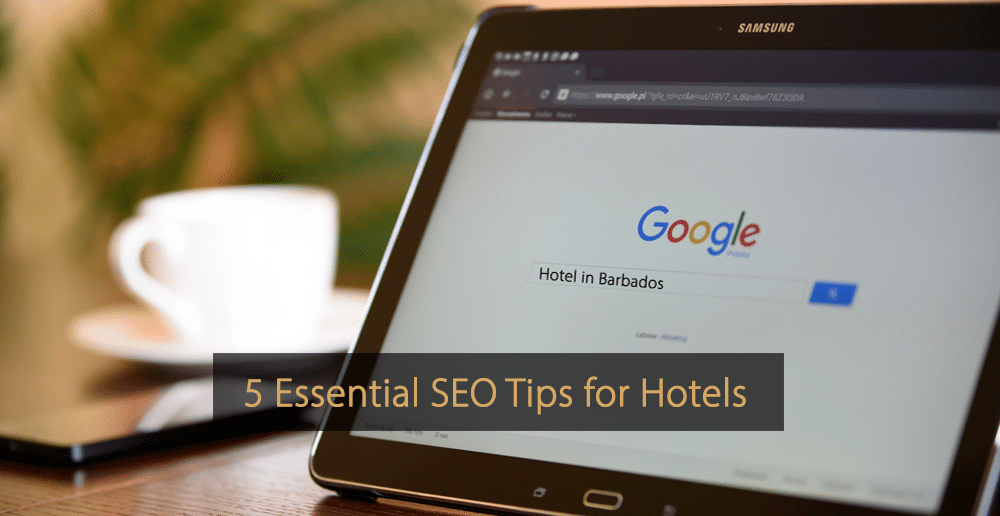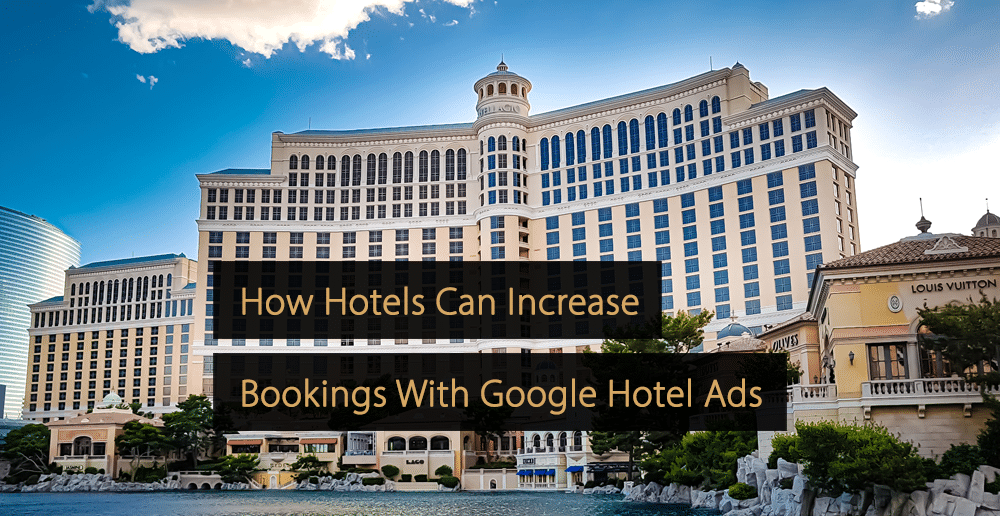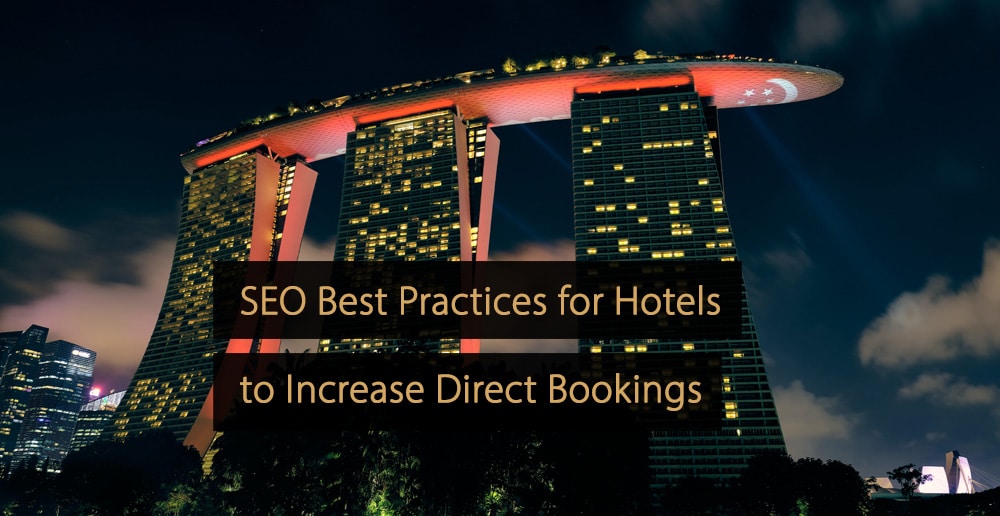What do you do when you want to find a hotel for your city break? Like many people, you probably start your search using a search engine like Google or Bing. According to Google, millions of hotel searches are carried out every day. People want to find information about facilities, rates, reviews, availability, and things to do in the area. Search engines deliver results pages, but not many people click past the first page. So, how do you improve your chances of getting on that first page? By Search Engine Optimization.
What Is Search Engine Optimization?
Search Engine Optimization (SEO) increases a website’s chances of ranking highly in search results, thus increasing potential traffic and customers. Search engines like Google and Bing use “crawlers” or “spiders” to index pages of information on the Internet, and using their own set of rules or an “algorithm,” they sort results in terms of relevance and popularity.
Video: What Is SEO?
Why Is It So Important?
The higher you rank in the results, the greater your chances of attracting traffic. While SEO might seem complicated or time-consuming, search engine marketing is free and reaches millions of potential customers worldwide every second. According to the State of Inbound Marketing Trends Report by HubSpot, around 27% of website traffic comes via organic search, which is the second most effective channel for acquiring new customers. Can you say the same about costly flyers and phonebook listings? Google is constantly developing and improving its services and results, and so should you. Here are five ways to start improving your SEO.
Table: Benefits of SEO for Hotels
| Benefit | Description | Impact on Hotels |
|---|---|---|
| Increased Online Visibility | SEO helps hotels appear higher in search engine results for relevant queries. | Drives more organic traffic to the hotel’s website, enhancing potential guest discovery. |
| Cost-Effective Marketing | Compared to paid advertising, SEO provides a sustainable and cost-effective way to attract guests. | Reduces reliance on paid ads, lowering marketing costs while maintaining visibility. |
| Higher Booking Rates | Optimized websites tend to engage visitors better, leading to higher conversion rates. | Directly impacts revenue by converting more website visitors into actual hotel guests. |
| Improved User Experience | SEO involves optimizing website structure and content and improving the user experience. | Satisfied website visitors are likelier to book, recommend, and return to the hotel. |
| Competitive Advantage | Hotels with strong SEO stand out in a crowded market, even against larger chains or OTAs. | Provides a level playing field to compete for guest attention based solely on relevance and quality. |
| Local Search Optimization | Local SEO strategies target people searching for hotels in specific locations. | Attracts guests who are ready to book, increasing the chances of last-minute and local bookings. |
| Brand Trust and Credibility | High rankings in search results are often equated with trustworthiness by users. | Enhances the hotel’s reputation, encouraging trust and confidence among potential guests. |
| Insights into Guest Behavior | SEO tools and analytics provide data on search trends, user behavior, and preferences. | Enables hotels to tailor their offerings and marketing strategies based on actual guest interests. |
SEO Tip 1 – Review Your Website
Take a hard look at your website. Think about how well it serves your customers and how user-friendly it is. Search engines like well-designed sites. Make sure all the links are working and relevant. Pages should link together. Search engines like site maps and appreciate pages with clear, appropriate titles that identify your hotel and location, such as “Golden Bay Boutique Hotels—The Arcadian.”
Your site needs to load fast. People will not wait patiently. Search Engines notice when users click away quickly and move to the next result. Customers and search engines don’t appreciate PDFs, Flash, and Javascript. Check that any media-rich files load quickly and can be seen by search engines.
Perhaps most importantly, most searches were done on mobile devices. According to the Search Engine Statistics Report by SerpWatch, 87% of mobile device owners use search engines at least once a day. So ensure your site is mobile-friendly. Google will continue to adjust its search engines accordingly.
SEO Tip 2 – Create Key Content
It’s not enough to have a well-functioning website. Both customers and search engines like unique, relevant content. So consider incorporating a blog or a news section if you haven’t already. Make sure you update it regularly—diary a schedule. Consider what your potential customers might be interested in, and you will probably find relevant keywords to help improve your chances of ranking higher in search results.
This is also a golden opportunity to emphasize your unique selling point, so if you are a boutique hotel with a new chef, write about it. If your gardens are getting a makeover and will be the fairy-tale setting for an intimate wedding, write about it. Get the local press to write about it, too. Just a note about keywords: the days of “keyword stuffing” are over. Customers and search engines can spot awkward sentences crammed with repetitive words.
SEO Tip 3 – Use Your Locality
Search Engines are delivering more relevant and localized results. So check that your site emphasizes the benefits and features of your location. What are your customers looking for, wanting to do, sample, or visit in your locality? Incorporate those ideas into your blog, news, page titles, or descriptions. Make sure you have a map on your site. There may be hundreds of hotels in your area, but are they opposite the best winery in town? Do they all have thermal spas? Are they minutes from the racecourse?
SEO Tip 4 – Quality Links
Like arrows pointing guests your way, quality links from other trustworthy sites can help increase traffic and inform search engines about your site’s authority and relevance. So, articles and links with the local press, online directories, travel sites, and attractions will help. If you have partnerships with local businesses, make the links reciprocal. One word of caution here: never pay for links, and remember that quality, not quantity, counts. Those clever search engines can spot bogus links.
SEO Tip 5 – Make Yourself Popular
Popular sites rank well, so a fast-loading, informative site with regular, fresh content is a start, but you still need to embrace Social Media. Make sure you feature on sites that your prospective customers use. Whether it’s Twitter or Facebook, add these to your update schedule.
SEO Tips for Hotels FAQs
These are just a few ways to improve SEO and utilize search engine marketing. Remember, great things take time, so gradually adjust your site. You can use many analytical tools to monitor your progress and watch your ranking increase.
Did You Like This Article About SEO Tips Hotels?
You might also be interested in the following articles:
- Google Travel Insights: Tools & Data Trends for The Hospitality & Travel Industry
- Hotel Booking System: Tips to Maximize its Benefits
- Tips to Increase Bookings Through Hotel Metasearch
- Hotel Websites Where Hoteliers Can Sell Packages (Including Examples)
- Airbnb Host Login: How to Get More Bookings on Airbnb
More Tips to Grow Your Business
Revfine.com is the leading knowledge platform for the hospitality and travel industry. Professionals use our insights, strategies, and actionable tips to get inspired, optimize revenue, innovate processes, and improve customer experience.Explore expert advice on management, marketing, revenue management, operations, software, and technology in our dedicated Hotel, Hospitality, and Travel & Tourism categories.
This article is written by:
Hi, I am Martijn Barten, founder of Revfine.com. With 20 years of experience in the hospitality industry, I specialize in optimizing revenue by combining revenue management with marketing strategies. I have successfully developed, implemented, and managed revenue management and marketing strategies for individual properties and multi-property portfolios.










Hi, Informative blog! SEO plays indeed a vital role in digital marketing. The above tips are useful not only for the hotels but for other industries too. You have covered all the major tips to obtain organic results. Thanks for sharing.
Thank you so much for sharing these valuable SEO Tips for hotel related websites. It’s really helpful.
Those tips are very informative for SEO. Also, profile creation, social bookmarking and forum profile backlinks are helpful for SEO.
Wonderful in-depth information on SEO tips for Hotels, These tactics can really help the Hospitality sector to perform better in search results. I subscribed to your blog for updates.
Thank you for all SEO tips for my hotel! It is very helpful. Thank you.
Thanks for the information, Quality and authoritative content is one of the best ways of your search engine rankings. There is no substitute for great content. Combined with these excellent tips, you can score well in search engines like Google.
Part of the importance of SEO is that it helps you rank higher in search engines. In turn, this will improve your traffic.
What an insightful article! These SEO tips are simply spot-on. From optimizing keywords to enhancing local listings, they’ve covered all the essential strategies to boost rankings on Google and Bing. A game-changer for the hospitality industry!